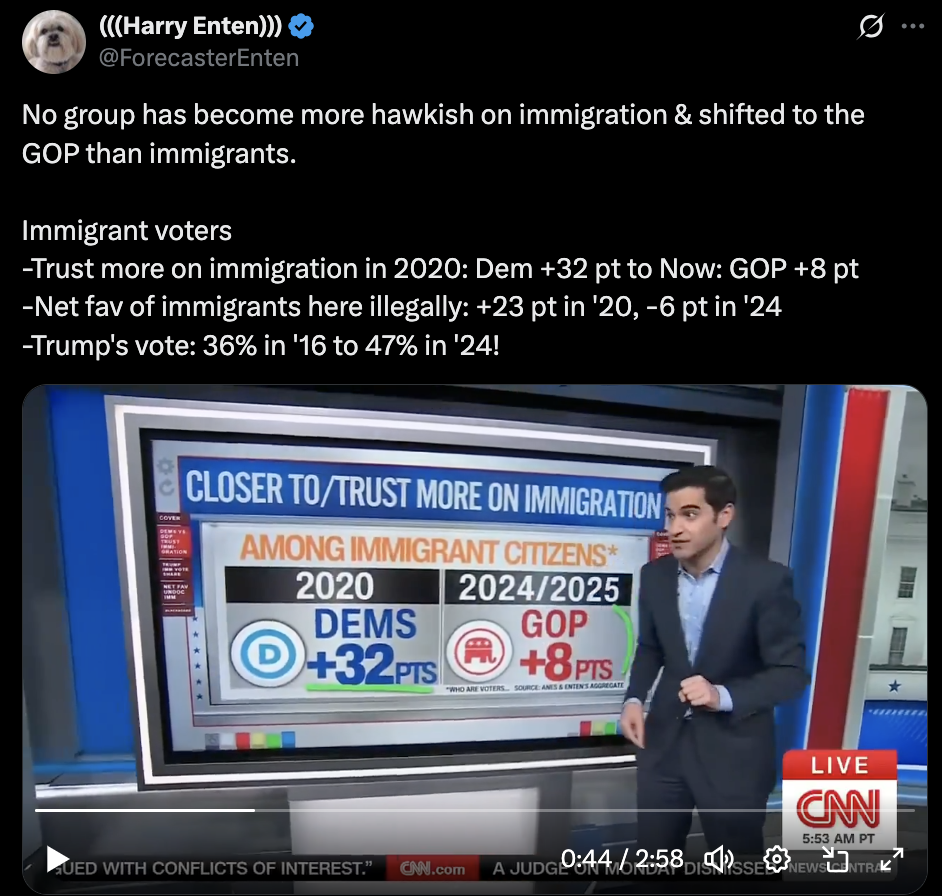CNN’s pollster Harry Enten was emphatic this week: “More so than any other group that I could find, the group of voters that became more hawkish on immigration were, in fact, immigrants themselves; immigrants who were registered to vote in this country.”

Whenever immigration levels spike, recent immigrants are among the first Americans to feel the impact. They tend to work in the same occupations; feel the downward pressure on their wages, and witness the degradation of workplace conditions for themselves as well as new arrivals; they see the exploitation and live in communities overwhelmed by unsustainable numbers. Mass immigration’s strain on infrastructure, hospitals, schools, and homeless shelters affects foreign-born citizens directly and indirectly.
More people came to the U.S. between 2021-2025 than in any other period in history; more than half of them illegally. The shift in immigrant voters is part of a broader shift in American voters who live off of their wages as opposed to their stock portfolios. These voters delivered a decisive message to Washington, D.C. last November: Manage immigration at levels we can sustain, and credibly enforce the limits. Many immigrant voters who themselves work through a sometimes difficult legal process understandably rejected policies that led to a crisis in which millions of people who should not have been admitted to the U.S. were released into the country outside of the legal system established by Congress.
After the border crisis, voters are aware of how important it is to manage immigration policy in the national interest. The party that voters trust to fully enforce the law within the limits of the law has an advantage. The party that can set enforceable limits on immigration that serve the interests of immigrant voters could achieve a lasting realignment.